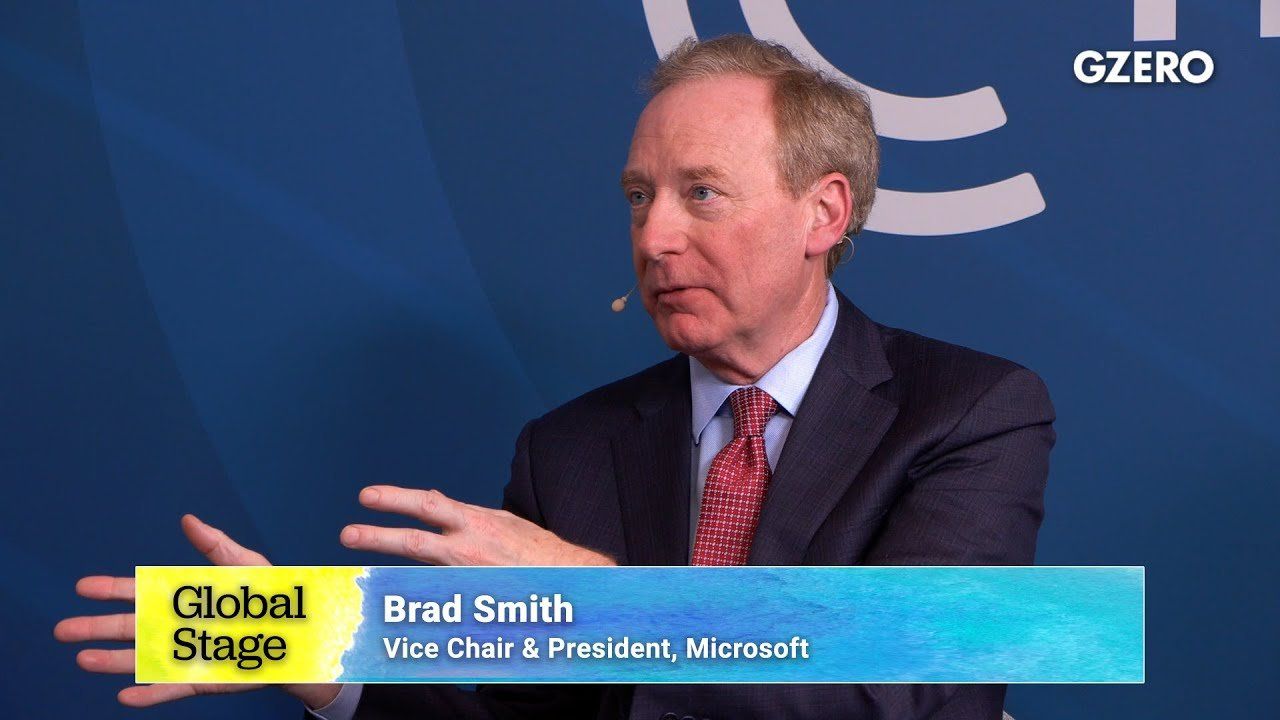
Microsoft’s partnership with OpenAI and DeepMind is at the forefront of maintaining America’s edge in artificial intelligence.
But can America stay ahead of China in the push for AI leadership? Nic Robertson, CNN’s international diplomatic editor, puts the question to Microsoft Vice Chair and President Brad Smith during a Global Stage livestream conversation hosted by GZERO in partnership with Microsoft at the Munich Security Conference.
Smith says that while the US is currently in the lead, it’s only by a matter of months. He explains that Microsoft is in a constant race with the Beijing Academy of Artificial Intelligence and companies like Baidu. “There is no reason to assume that one country or the other will have a sustainable leadership position,” he says. “We’re all going to have to keep racing ahead.”
While both the US and China will continue competing for the top spot, the true advantage will go to the one that can deploy AI both quickly and, Smith says, “in a manner that will both lead to its ongoing improvement and the productivity of their economies more generally.”
Watch the full Global Stage conversation from Munich here: https://gzeromedia.com/globalstage
- How democracies nurture the growth of artificial intelligence ›
- Be very scared of AI + social media in politics ›
- What We're Watching: Bard bot, Nigerian election heats up, Tibetan kids pulled away ›
- The transformative potential of artificial intelligence ›
- US debt limit: default unlikely, dysfunction probable - GZERO Media ›
- Global Stage: Global issues at the intersection of technology, politics, and society - GZERO Media ›
- US CEOs too influential on China policy, says Rahm Emanuel - GZERO Media ›